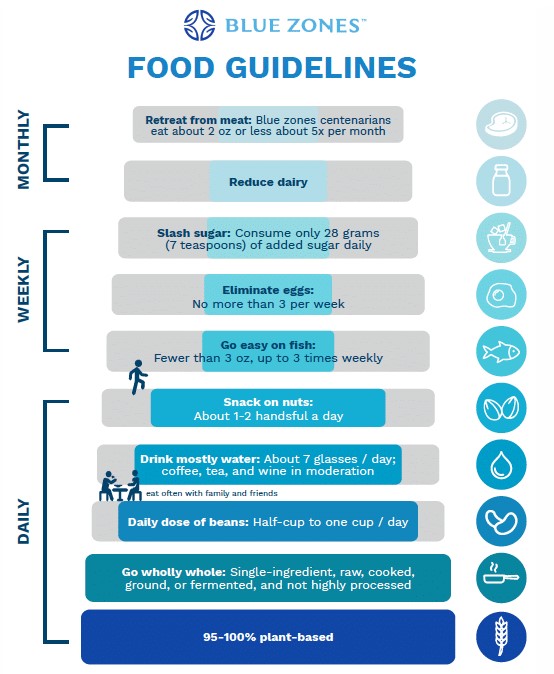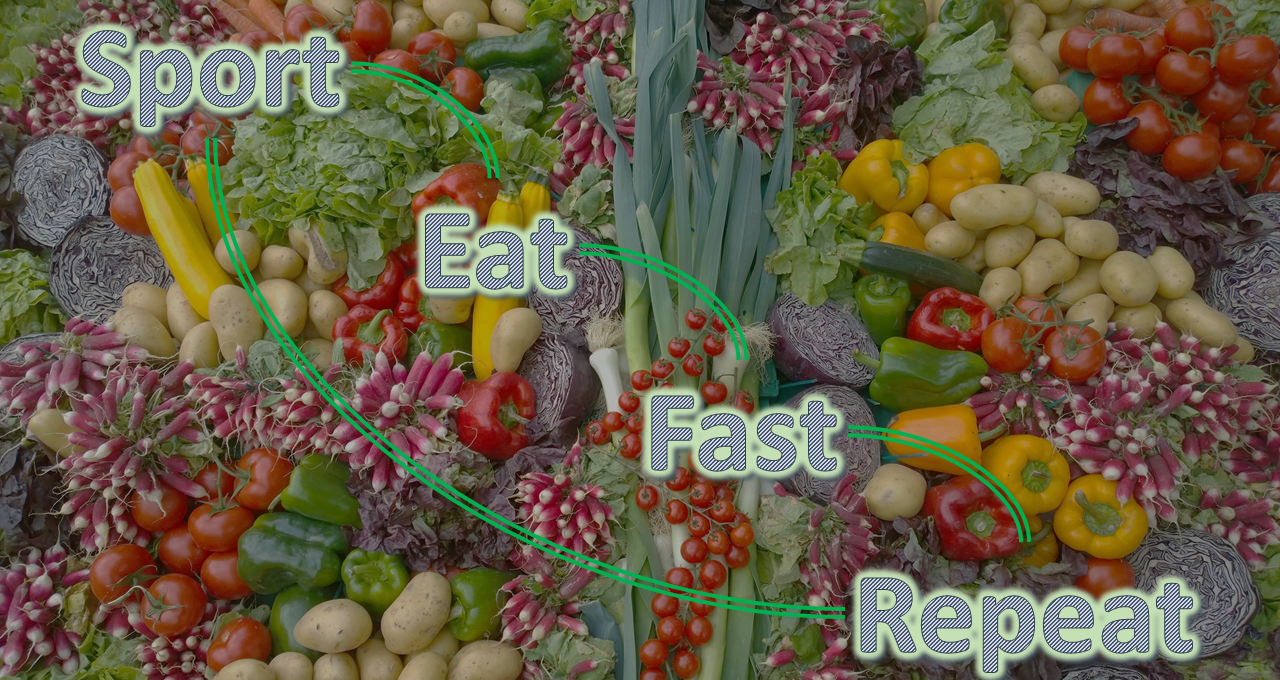When you write about food you also sometimes need to discuss not eating. That’s what the “Fast” in this title stands for: maximizing the time between meals. Some of you may fast for religious reasons. Many faiths including the Muslim, Jewish, Christian and Hindu religions have traditions related to fasting. In my case it is a health and lifestyle thing. Intermittent fasting is the way I choose to recover from sporting, it helps me control my weight and sleep better. Fasting also matches with my view that we can lower our environmental impact by consuming less.
How it Works
As far as I’m concerned intermittent fasting is a way of life, an eating pattern, not a diet. Intermittent fasting (I.F.) means that you take all your meals within a relatively short period of time, or you eat one day and not the next. There are quite a few models to implement I.F.; this article describes five different methods, with a good analysis of their pros and cons.
My Own Experience
My I.F. pattern is similar to the “Leangains” or 16:8 method: fasting during sixteen hours and taking meals within an eight-hour period. I stick to this pretty strictly every weekday and follow a somewhat looser pattern in the week-ends.
A personal trainer, Marc Raats, introduced me to I.F. about three years ago. I wondered about how to go about eating in combination with exercising. I hated to go for a run with a stomach full with my breakfast (first meal in the morning, hence “break fast”). Marc told me he did not eat before exercising and he mentioned I.F. which I researched and ended up adopting.
My daily pattern looked something like this:
- Sport – Start the day with running or fitness, without eating anything until lunch
- Eat – Enjoy a big lunch at noon, snack with a fruit or vegetable snack around 3pm, have dinner around 6 or 7 pm.
- Fast – until the following day.
It took me about a week to become comfortable with this pattern. For sure, not having breakfast was hard at first. Warm beverages like tea and coffee helped me cope during the first few days.
For a variety of reasons I shifted the timeline and these days I eat a small breakfast around 8am, a large lunch and a light afternoon meal. I love to run in the morning, for up to two hours, on an empty gut. Ending my eight-hour eating cycle around 4pm means I digested well when I go to bed.
Weight Loss Benefits
When you are not eating you give your body time to lower insulin levels and your fat cells can then release their stored sugar, to be used as energy. You lose weight because your body burns fat if you let insulin levels go down.
During the past three years I noticed that whenever my weight goes up, for instance during holiday periods, I find it easy to bring it back to my desired level within a couple of weeks. To be completely transparent: my weight has remained steadily between 76 and 80 kilos.
Health Benefits
Besides losing weight, you may experience improved heart and brain functions because of reduced insulin. Research suggests that intermittent fasting is beneficial for reducing inflammation and improving conditions associated with inflammation, such as Alzheimer’s disease, arthritis, asthma, multiple sclerosis and even stroke. It also helps to prevent diabetes type 2.
Another benefit of fasting that is strongly suggested by research is that it induces autophagy. Your body consists of billions of cells. Over time, unwanted molecules can build up inside those cells and sometimes this can damage the cells. Autophagy is the natural process whereby your cells remove these unwanted molecules. Autophagy also seems to play an essential role in the immune system by cleaning out toxins and infectious agents.
Warnings
Skipping meals and limiting calories can be dangerous for you if you suffer from conditions such as type 1 diabetes. Beware also if you take medications for blood pressure or heart disease as you may be more prone to imbalances of minerals during periods of fasting. In short: please consult your doctor before experimenting with IF should you take medicines for a chronic disease.
If you, like me, adopt intermittent fasting, be extra mindful of what you eat. As you may eat less in quantity, the quality of your calories is of more importance than before. Feed your body with healthy food and avoid “useless”, processed foods. As always, I recommend the blue zone guidelines to help you create a balanced menu.

Blue Zones Guidelines
Interesting? Want to know more about intermittent fasting? You can find below a few links of articles I used to prepare this article. I am also keen to hear about your experience, please share your thoughts and feedback!
Links for your information:

[…] burns fat. You can easily train in the low-intensity zone on an empty stomach it fits well with an intermittent fasting diet. When you do fitness exercises you’ll probably stay in this […]
[…] and memory, a healthier immune system, reduced stress, improved mood and even a better metabolism. Intermittent fasting is one of the ways to give your body a rest. Here’s a nice article about “The Benefits Of […]